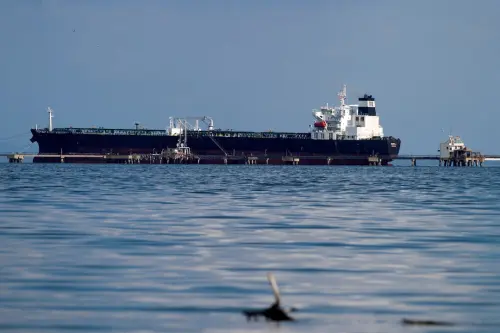On Wednesday, President Donald Trump announced the reversal of a license granted to Chevron by his predecessor, Joe Biden, to operate in Venezuela over two years ago. Trump accused President Nicolas Maduro of Venezuela of failing to progress on electoral reforms and migrant returns.
In a post on Truth Social, Trump stated he was "reversing the concessions" of the "oil transaction agreement, dated November 26, 2022." Although Trump did not directly mention Chevron, the administration had granted Chevron permission to operate in Venezuela's oil sector on that same day, making it the only license issued for Venezuela at that time.
Following Trump's announcement, Venezuelan Vice President Delcy Rodriguez criticized the U.S. government's decision, mentioning that such actions had contributed to migration out of Venezuela. The White House did not immediately respond to requests for further information on Trump's statement.
Later, U.S. Secretary of State Marco Rubio stated he would provide guidance to terminate all oil and gas licenses issued during the Biden era, describing them as funding the Maduro regime.
Chevron, which exports a significant amount of crude oil from Venezuela, acknowledged Trump's post and was assessing the implications of the revoked license, which would prevent further Venezuelan crude exports.
The move to revoke the license is part of Trump's strategy against Maduro's government, aligning with his previous "maximum pressure" sanctions policy during his first term. Although Biden reinstated broad oil sanctions in response to Maduro's unfulfilled electoral promises, he had left Chevron's license intact, generating substantial revenue for the Maduro administration. Rubio and others in Trump's administration have emphasized that the U.S. can endure any disruptions in oil supply due to its significant domestic production.
Besides impacting Chevron, the revocation of licenses granted to other foreign oil companies could have broader implications. The abrupt cancellation could affect the ongoing shipments of Venezuelan crude destined for the U.S. and potentially disrupt financial activities in Venezuela.
Opposition leader Maria Corina Machado praised Trump's decision as supportive of democracy and the Venezuelan people during an interview, emphasizing its importance for the future. The termination of the oil concession agreement is set to take effect on March 1, raising questions about the fate of current cargoes en route to the U.S. or scheduled for departure from Venezuela by the end of the month.
Maduro's government firmly opposes U.S. sanctions, labeling them as unjust economic warfare intended to destabilize Venezuela. Despite economic challenges and shortages, Maduro and his supporters maintain the country's resilience against external pressures.
Background:
When the agreement with Chevron was initially signed, the company was owed approximately $3 billion by Venezuela. As part of Chevron's debt recovery plan, projections indicated the company could recover a significant portion by the end of 2024 through increased oil production levels at joint ventures with Venezuela's state oil company, PDVSA.
However, amid ongoing challenges, Chevron announced plans to streamline operations by reducing global staff levels by 2026. The company aims to improve efficiency and competitiveness in the market but acknowledged difficulties in adapting quickly to changes.
